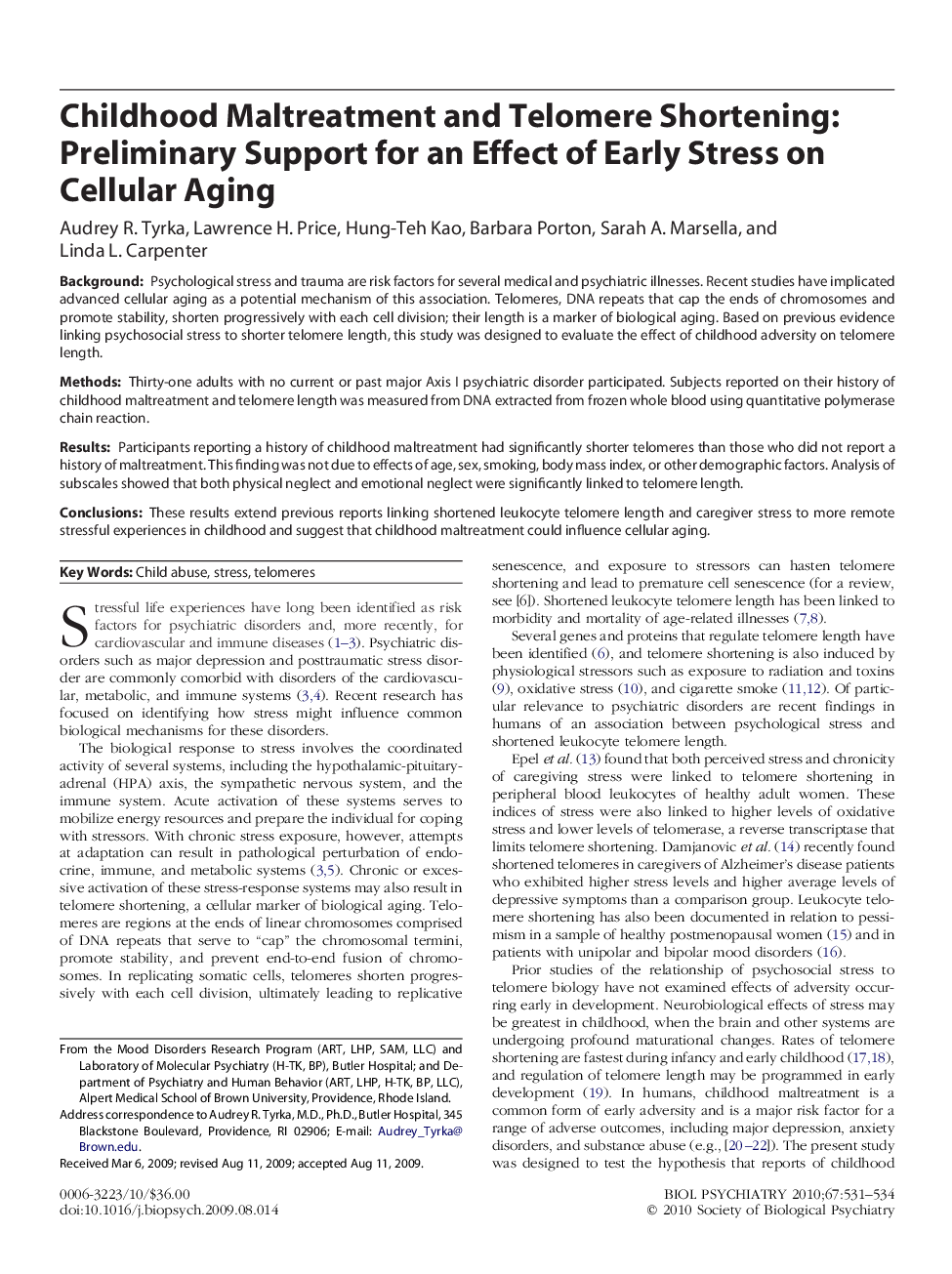| کد مقاله | کد نشریه | سال انتشار | مقاله انگلیسی | نسخه تمام متن |
|---|---|---|---|---|
| 4179255 | 1276541 | 2010 | 4 صفحه PDF | دانلود رایگان |

BackgroundPsychological stress and trauma are risk factors for several medical and psychiatric illnesses. Recent studies have implicated advanced cellular aging as a potential mechanism of this association. Telomeres, DNA repeats that cap the ends of chromosomes and promote stability, shorten progressively with each cell division; their length is a marker of biological aging. Based on previous evidence linking psychosocial stress to shorter telomere length, this study was designed to evaluate the effect of childhood adversity on telomere length.MethodsThirty-one adults with no current or past major Axis I psychiatric disorder participated. Subjects reported on their history of childhood maltreatment and telomere length was measured from DNA extracted from frozen whole blood using quantitative polymerase chain reaction.ResultsParticipants reporting a history of childhood maltreatment had significantly shorter telomeres than those who did not report a history of maltreatment. This finding was not due to effects of age, sex, smoking, body mass index, or other demographic factors. Analysis of subscales showed that both physical neglect and emotional neglect were significantly linked to telomere length.ConclusionsThese results extend previous reports linking shortened leukocyte telomere length and caregiver stress to more remote stressful experiences in childhood and suggest that childhood maltreatment could influence cellular aging.
Journal: Biological Psychiatry - Volume 67, Issue 6, 15 March 2010, Pages 531–534